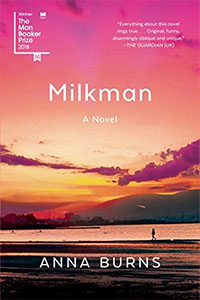
Stalking Awareness Month
January is Stalking Awareness Month
Stalking behaviors may include damaging a person’s property, showing up unexpectedly, calling or texting repeatedly, commenting or liking all or most of a person’s social media posts, tapping phone calls or going through a person’s emails and/or texts.
While stalking is one of the least publicly discussed forms of interpersonal violence, it disproportionately affects college students. A recent study found that college-aged students are twice as likely to experience stalking than the general public but are also less likely to report it to authorities. Why are college-aged students more likely to deal with stalking? One potential reason is the physical layout of college campuses – stalkers can easily access a victim anywhere on campus at any time. Social media such as Twitter, Snapchat and even a university directory can make it easier for a stalker to target a victim/survivor.
Anyone experiencing stalking should reach out and get help. Stalking does not go away on its own; moreover, stalking behaviors tend to escalate quickly, especially if a victim had a former relationship (or there was a perceived relationship) with their stalker. The Women’s Center aims to help raise awareness about the impact of stalking and provide students, faculty and staff with resources to respond should stalking occur.
Stay tuned for details on Stalking Awareness Month programming and events in the coming months!
In the News
‘Stalking is not romantic:’ NC State brings awareness to stalking ahead of Valentine’s Day – CBS 17
Women's Center Book Picks
 Anna Burns, Milkman (2018)
Anna Burns, Milkman (2018)
I have read Anna Burns’ third novel more times than I can count. Told in the first person by a narrator called simply “middle sister,” the novel recounts her experience of being stalked by a paramilitary man in Belfast, Northern Ireland in the 1970s. The novel heartbreakingly renders the physical, mental, and psychic costs of stalking, especially in a community where male privilege is guaranteed by physical violence. Despite this grim premise, middle sister is funny, irreverent, and often confused. Many readers will find something familiar in the novel, whether in middle sister’s experiences of being stalked, being maligned by community gossip, or subject to the pervasive fear and paranoia of a people subjected to state and intracommunal violence.
Check out at Hill Library or from the Women’s Center Library.
 Alison Dean, Seconds Out: Women and Fighting (2020)
Alison Dean, Seconds Out: Women and Fighting (2020)
When did people start to think women couldn’t throw a punch? Dean’s memoir traces her own development as a boxer and blends it with a long history of women who have been experts in combat sports. Her analysis is perceptive about how combat sports reveals the structures of class, race, and gender. By analyzing how women are considered targets rather than agents of violence, Dean encourages women to inhabit their bodies with less fear. Highly recommended as both a history of women in combat sports and a more personal reflection on what it means to move through the world as a woman.
Check out from the Women’s Center Library!
 Melissa Febos, Girlhood (2021)
Melissa Febos, Girlhood (2021)
Melissa Febos’ memoir-in-essays dissects her experience of girlhood, from first love to stalking to drug addiction. Her voice is deeply personal and she attends to the political dimensions of experiences most girls and women write-off as “irrelevant” or “unimportant.” Her writing, more than anyone else I can think of at the moment, reveals the “I” to be a “we.” Reading this book turned my world upside down as she recounted those experiences that seemed ordinary: unwanted touch, bullying, stalking, fraught relationships with mothers, the meanness of teenage girls. This book will help you see many experiences in a new light.
Check out from the Women’s Center Library!
Support is Available
** If you or someone you know is experiencing relationship violence, sexual violence, stalking or any other form of interpersonal violence and are in need of advocacy services, the NC State Women’s Center has trained advocates available to offer crisis intervention, emotional support, resources, and referrals. Students can contact the 24/7 Sexual Assault Helpline at 919-515-4444 or ncsuadvocate@ncsu.edu to be connected with an advocate.
Advocacy services through the NC State Women’s Center are available for all students inclusive of all gender identities and sexual orientations.
For more information on advocacy services, please visit go.ncsu.edu/supportsurvivors. You may also visit go.ncsu.edu/safe for additional information on resources and reporting options.